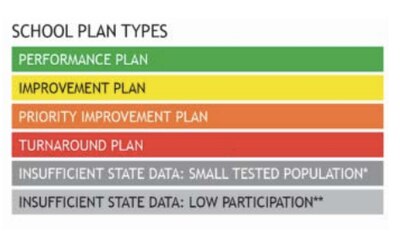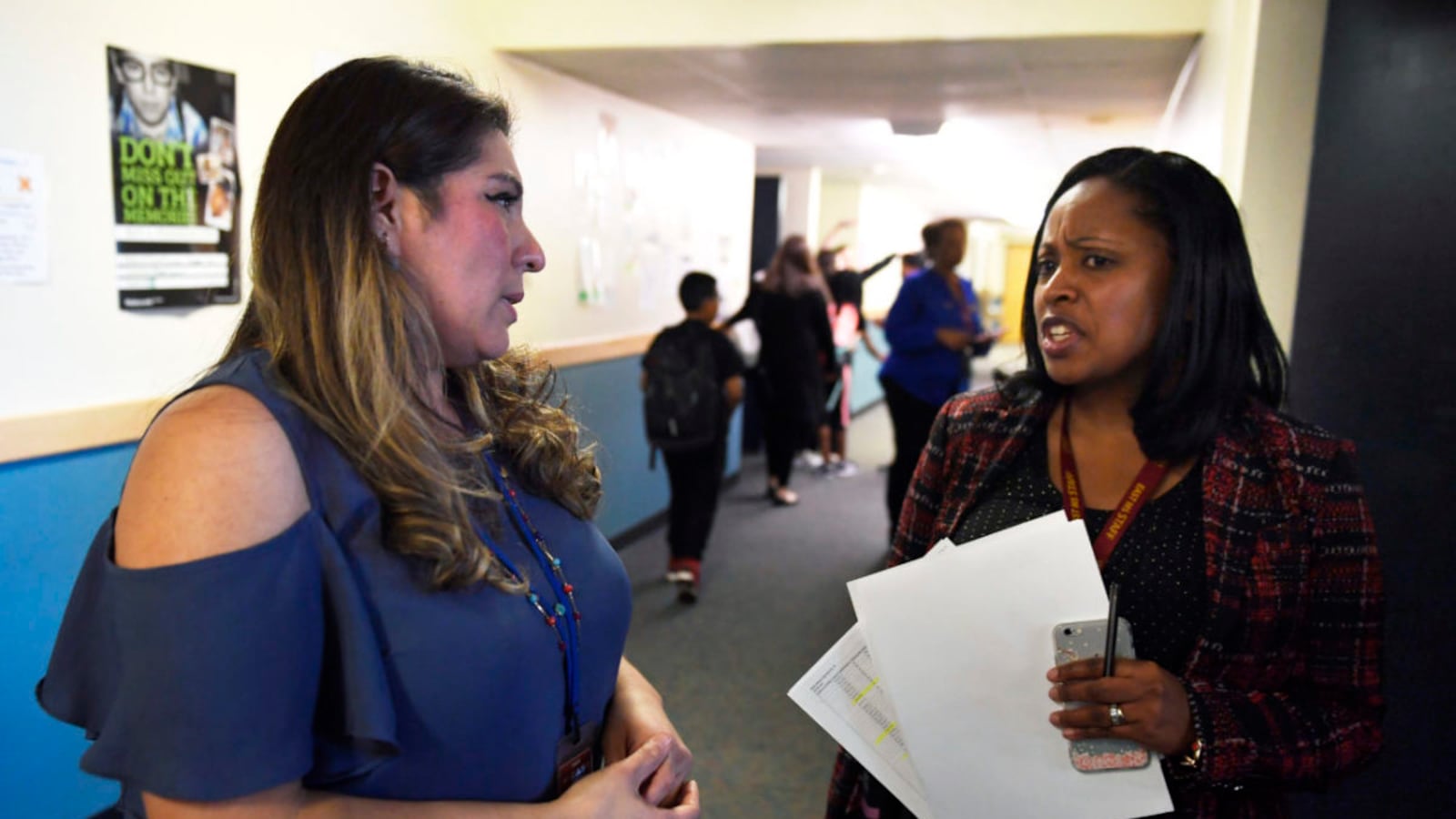School district leaders in Aurora are proposing to spend almost half a million dollars next school year to train more principals in leadership skills that have helped some of the district’s low-performing schools improve.
After a $1.6 million experiment with three leadership programs — of which more than half was covered by grant money — district administrators have recommended one, the University of Virginia’s School Turnaround Program.
Of 14 schools that participated in the university program in the last three years, all but three earned satisfactory state ratings this year, and those three schools had only started the program this school year. Of the schools that started the program earlier, and that were already rated low and at risk of state intervention, all of them earned higher ratings. Other low-performing schools that went through the other training programs the district was trying, had mixed results.
Officials credit the university program with helping improve the performance of participants’ schools, an important improvement for a district like Aurora that was until last year on the state’s watchlist for low performance.
Principal Jen Dichter of Sable Elementary credits the training with helping her move her school out of low-performance and away from a path that could lead to state action.
“Its developed my leadership ability,” Dichter said. “It really supported my thinking with creating a vision for developing a learning organization.”
The board of Aurora Public Schools took up the training proposal in the context of next school year’s budget.The district would send principals and leaders from 11 schools to the University of Virginia, this time extending training to other schools, not just those that are low-performing.
Building leadership is widely seen as important to retaining teachers and improving school performance, but it’s less clear how to teach someone to be a good principal. According to one state report, more than one-fifth of teachers who leave the profession cite dissatisfaction with school leadership.
State legislators have discussed the issue but failed to pass a proposed bill to pay for more principal training.
When Andre Wright took over as Aurora’s chief academic officer earlier this year, he discussed principal training as a priority. At an earlier board meeting, he and superintendent Rico Munn said the pilot trainings produced significant results and sparked interest from principals.
However the district declined an interview to discuss the initiative and its importance.
In a statement, Wright said only that the partnership with the university was “to provide impactful training, professional development and support for our school leaders. The principals who have taken on training from UVA have implemented effective turnaround strategies in our schools…We want to continue to expand this learning and expertise throughout our district to further drive student growth and achievement.”
When Aurora started targeting principal improvement three years ago as one piece of the district’s reform plans, officials focused on principals at the lowest-performing schools.
Dichter of Sable Elementary was among those asked by Wright to participate in the training starting in the 2015-16 school year. Although she had been a principal and assistant principal for several years, she had never had leadership training.
The training started with a weeklong session over the summer at the university. There, Dichter said participants reviewed case studies of other organizations using data to improve, including a hospital.
From there, Dichter examined data at her school, in a way that she still uses to create 90-day action plans. Twice a year, the university trainers come to her school to observe and give feedback. At least three teachers and an assistant principal have gone through parts of the training with Dichter to help think about what improvements Sable needed.
In talking to the school board, Wright pointed to the university program’s inclusion of “teacher voices” into the training — a feature the other two programs the district was trying, lacked.
“They really set the opportunity for cross collaboration,” Wright said.
Besides learning how to be a better manager, Dichter points to other benefits that came from learning to analyze data.
“We really came back and redesigned the way we operate,” Dichter said. “We looked at what data are we collecting and is it giving us the necessary information? We had to look at what we were assessing our students on and there were some shifts we had to make.”
Specifically, teachers at Sable did not have a phonics-based test for students, so teachers did not know where students had gaps.
Teachers and leaders from a group of schools that went through the training that first year together, came back and created new assessments for their schools.
Dichter said Sable’s leaders also were surprised to learn that students had more gaps in math than in literacy.
“These were gaps in understanding from previous years,” Dichter said. “To ensure the students learn fractions or dividing decimals they have to have a solid understanding of multiplicative reasoning. We really had to go back and do some reteaching before we could move on to another match concept.”
Before going through the training, Sable was close to ending in turnaround — the state’s lowest performance rating which can trigger school-level reform and later state action. The school is now rated performance — which is the highest rating for a school. And 81 percent of teachers in a recent state survey said their school had good leadership.

Next year, Dichter is taking a job at Vaughn Elementary, an Aurora school that is still struggling, and said she hopes to help them improve like Sable did.
In her place, Sable’s new leader will be one of her assistant principals who has also benefited from the university training.
The other programs that the district was comparing included the New York-based Relay Graduate School of Education training that has had a lot of national attention in the past, especially from reform-minded advocates, and a program through the Colorado Department of Education, specifically for principals from schools in turnaround.
In the most recent round of ratings, of the 16 schools that had principals go through RELAY, 10 still are ranked in the two lowest state ratings — the ones that put a school at risk for state action.
And this year’s teacher surveys from three of those schools showed less than half of the respondents expressed confidence in their school leadership.
The board must approve the final budget later this month.

